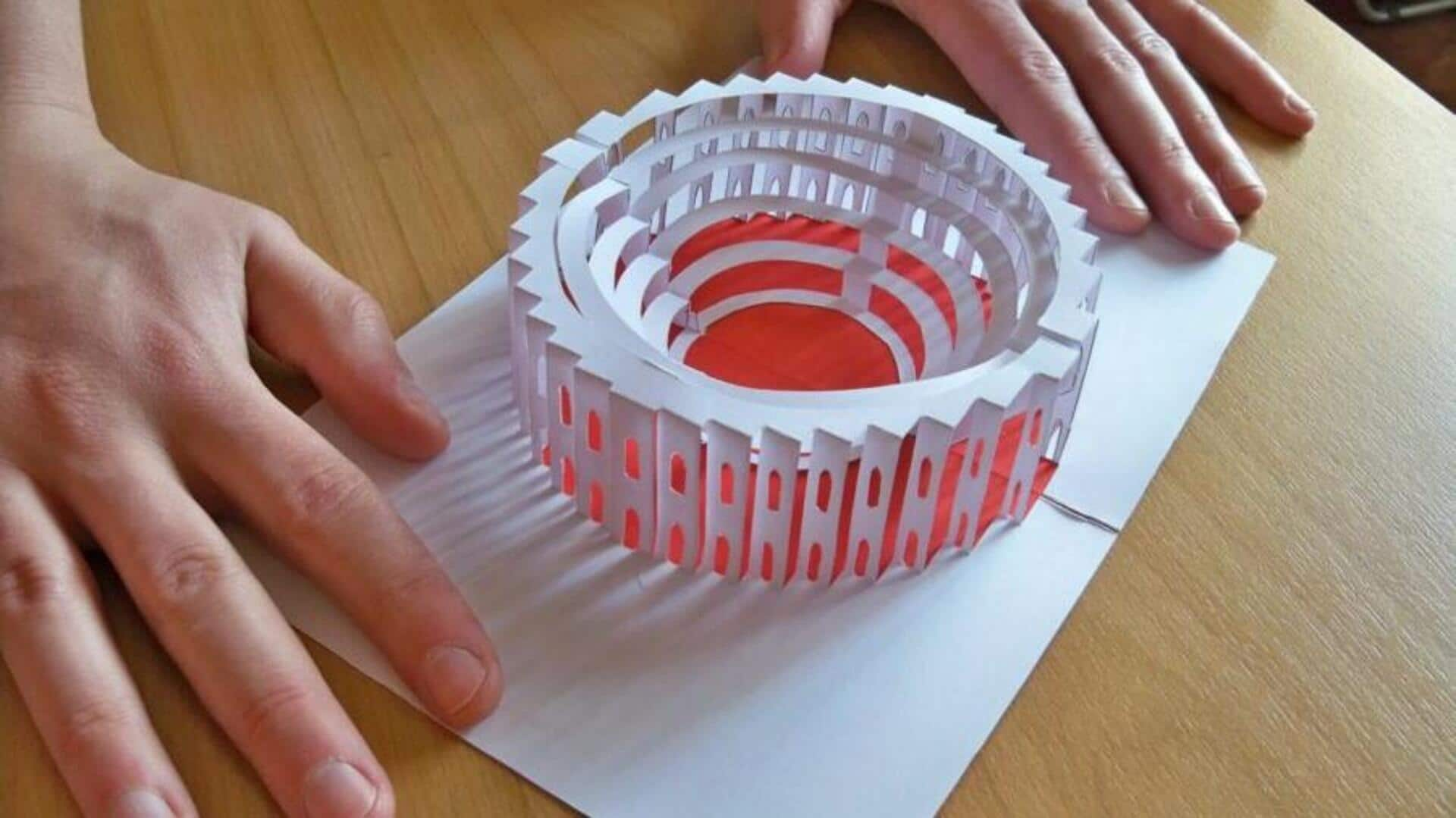
Discover the art of kirigami with this guide
What's the story
Kirigami is a mind-blowing art form that revolves around the practice of cutting paper to shape intricate designs, sculptures. Unlike origami, which is all about folding, kirigami is a mix of cutting and folding techniques. With roots in Japan, the art has taken the world by storm for its capability to turn plain old sheets of paper into complex structures. Kirigami can be used for decoration, education, engineering models, etc.
Essential tools
Tools needed for kirigami
To get started with kirigami, you require a few basic tools. A sharp pair of scissors or a craft knife is a must for making precise cuts. A cutting mat can protect your work surface while also providing a stable base for cutting. Having a ruler also helps in making straight lines and accurate measurements. These tools are easily available at most craft stores and are pretty inexpensive.
Cutting techniques
Basic techniques in kirigami
Kirigami has a few basic techniques that are essential for creating intricate designs. The most basic technique is the straight cut, which is the foundation of most patterns. Curved cuts contribute complexity and fluidity to the design. These techniques take time to master but let you create more intricate patterns as you practice.
Diverse uses
Applications of kirigami
However, kirigami is not just about art, it's also about practical applications. In architecture, kirigami principles are employed to create foldable structures that can easily be stored or transported. In education, it makes a fun tool to teach geometry concepts through hands-on activities. Kirigami-inspired designs are also commonly spotted in greeting cards and decorative items.
Getting started
Tips for beginners in kirigami
If you're a beginner wanting to give kirigami a try, start off with simple projects. Pick easy patterns that require minimum cuts, before moving onto more difficult ones. Practice often to hone your skills and develop confidence in manipulating the tools efficiently. You can also become a part of online communities or workshops to gain valuable insights and inspiration from fellow enthusiasts.